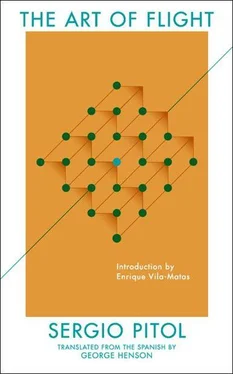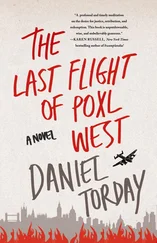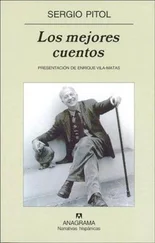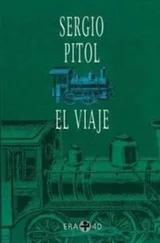In the opening paragraph of Hašek’s novel, Mrs. Müller, a charwoman at a squalid rooming house, announces to her tenant, Švejk, a hawker of dogs: “So they’ve killed our Ferdinand!” 20The action takes place in Prague. The author makes clear immediately that an army medical board has certified our protagonist an “obvious imbecile.” They’re talking about none other than the Archduke Ferdinand of Habsburg, the heir to the Empire’s throne. From that moment on, a dialogue of the deaf takes place between heraldry and ordinariness at ground level. Mrs. Müller will settle on the highest branches of the ruling dynasty; her tenant, on much more villainous levels. Of course, Švejk will triumph, and although the novel endeavors to address the decline and fall of an empire, it will forever be, from the beginning to end, a chronicle of disorderly factions, those most contemptuous of perfection that society embodies. Hašek’s novel is a chronicle that revels in its vulgarity, in the absence of virtues, in bodily filth, and, in due time, in scatophilia.
Švejk, all the while rubbing his knees with an anti-rheumatic liniment, asks the question that anyone would think to ask upon hearing the Christian name of someone who has been killed: “Which Ferdinand, Mrs. Müller?” adding, before the interlocutor can answer, that he only knew two Ferdinands, one the delivery boy of the chemist Prusa, who had once drunk a bottle of hair lotion by mistake, and the other Ferdinand Kokoška, who collected dog waste from the streets. He concludes, “They wouldn’t be any great loss, either of ’em.”
Thus, from the beginning, an irrepressible and bawdy verbal stream flows from the protagonist’s mouth. Švejk’s speech recalls those drunken, incoherent, and unhinged tirades heard in taverns in the wee hours of the morning. After hearing that the assassination involved a member of the imperial family, he comments that a customer at the pub had told him not long ago that someday all the emperors in the world would be brought down, which forced the tavern owner to have him arrested, but the bloke landed a punch on the landlord and two on the policeman. He adds that they then took him away in a drunk cart until he returned to his senses, and while the dizzied reader is unable to grasp what the rain of punches was all about — who gives them or who receives them or why they happened in the first place—Švejk returns suddenly to the death of the Crown Prince, without a doubt the most commented upon incident at the time in every corner of the Empire. But the manner in which he explains his reflections is extremely chaotic: “Yes, Mrs. Müller, there’s queer things going on nowadays; that there is. That’s another loss to Austria. When I was in the army there was a private who shot a captain. He loaded his rifle and went into the orderly room. They told him to clear out, but he kept on saying that he must speak to the captain. Well the captain came along and gave him a dose of C.B. Then he took his rifle and scored a fair bull’s eye. The bullet went right through the captain and when it came out the other side, it did some damage in the orderly room, in the bargain. It smashed a bottle of ink and the ink got spilled all over some regiment records.” Like us, the readers, Mrs. Müller is completely lost. She ponders everything for a moment, trying to understand the story, then, unwisely, asks her tenant the fate of the soldier. Švejk’s response is instantaneous: “‘He hanged himself with a pair of braces,’ said Švejk, brushing his bowler hat. ‘And they wasn’t even his. He borrowed them from a jailer, making out that his trousers were coming down. You can’t blame him for not waiting till they shot him. You know, Mrs. Müller, it’s enough to turn anyone’s head, being in a fix like that. The jailer lost his rank and got six months as well. But he didn’t serve his time. He ran away to Switzerland and now he does a bit of preaching for some church or other. There ain’t many honest people about nowadays, Mrs. Müller.’” And soon after these longwinded and unnecessary circumlocutions, he returns to the topic: “‘I expect that the Archduke was taken in by the man who shot him. He saw a chap standing there and thought: Now there’s a decent fellow, cheering me and all. And then the chap did him in.’”
In that inornate beginning, overwhelmed by the character’s verbal incontinence, we glimpse Hašek’s narrative intention: to degrade history, History in uppercase, until it becomes a trivial series of foolish tales. The assassination of the heir to the Austrian throne constitutes one of the most consequential events in our century. The shot that ended the life of the Archduke marked the beginning of the First World War, an event that would change Europe’s political landscape and, in the medium or long term, the world. The collapse of the empire would give rise to a new series of nation states. Bohemia, the country where Švejk lived, would unite with Slovakia to form the Republic of Czechoslovakia. Inside Russia, the other great empire of Continental Europe, a transformation of the social, political, and economic structures would take place that would introduce others that until then had been regarded with the conflicting emotions of loathing and hope. Utopia was becoming a reality. Borders everywhere would change. There would be a new distribution of colonial territories and spheres of influence. For Švejk, the assassination of Ferdinand of Habsburg is reduced to the level of the death of the druggist Prusa’s delivery boy, that idiot who accidentally ingested a hair lotion, that of Kokoška, the collector of dog excrement on the streets of Prague, or the soldier who hanged himself with the jailer’s suspenders. The episodes of greater historical significance are trivialized upon being compared with the most anodyne human detritus. Hereafter, this device will become one of the hallmarks of the best contemporary Czech narrative. The tone of the Švejk’s soliloquies resembles the delirium of those drunkards who remember everything only to confuse everything. Hašek’s world is a world upside down, where the mechanisms of power are confused with carnival and where plot and language constitute a marked unity with a Rabelaisian seal.
Angelo María Ripellino believes that The Good Soldier Švejk belongs to the tradition of Habsburgian literature. “Even if it does so with harshness and bitterness and without a minimum of sympathy, the book expresses the agony of the Empire, the Finis Austriae , the twilight of Kakania, of that — as Musil said — misunderstood and now non-existent nation that was in so many ways an unappreciated model.” Hašek’s book, in fact, does not reveal any sympathy for this world or any of its myths. He does not delight in ironizing the extreme complexity of a culture in the process of growing dark as Musil does in The Man Without Qualities , or in the heroic military exploits regarded for centuries as the most valuable foundation of that dual monarchy — royal and imperial — as occurs in the novels of Lerner-Holenia, or in the bitter and melancholy memory of its gradual dissolution, as in Joseph Roth’s Radetzky March , or the delusional pathos with which Andrzej Kuśniewicz, one of the great chroniclers of that collapse, a Pole born in Galicia, one of the eastern regions of the Empire, who, in The King of the Two Sicilies and Lesson in a Dead Language , describes the death rattle of the final agony. Hašek doesn’t feel the slightest nostalgia for that defeated world on the verge of extinction. The information we have about the character testifies to his disdain for everything related to that political entity, its culture, its customs, its religion. Above all, he detested the judicial and administrative mechanisms in whose labyrinth Švejk, just like the characters of Kafka, his contemporaries, stumble endlessly, as an example that no one, no matter where he was, could permanently escape its tentacles.
Читать дальше












